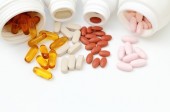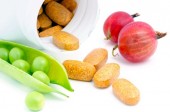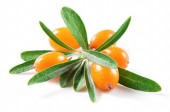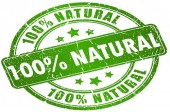Even though you may be stuck at work, there is a way to get in a small (yet effective) workout.
Additional Info
- Segment Number 3
- Audio File healthy_talk/1510ht3c.mp3
- Featured Speaker Kim Dolan Leto, Fitness Expert
- Book Title 10 Steps to your F.I.T: Faith Inspired Transformation
- Guest Website Kim Dolan Leto
-
Guest Bio
 Kim Dolan Leto has been called one of the most photographed models in history, graving the covers of top publications like Fitness, Fitness Life, Oxygen, and more.
Kim Dolan Leto has been called one of the most photographed models in history, graving the covers of top publications like Fitness, Fitness Life, Oxygen, and more.
A fitness expert and speaker with a passion for leading women to experience faith-inspired transformations that affect their physical, mental and spiritual wellness, she recently released 10 Steps to your F.I.T: Faith Inspired Transformation (Jan 1, 2015).
She is the director of family health and wellness for the International Sports Sciences Association (ISSA), holds a degree in business and is a certified fitness trainer and nutrition specialist.
Kim is devoted to Christ and desires to make His name famous in the world of fitness. She resides in Scottsdale, Ariz., with her husband and their beautiful children. - Length (mins) 10
- Waiver Received No
- Host Mike Smith, MD
Even if you've never been someone who has loved exercise, it's never too late to start.
Additional Info
- Segment Number 2
- Audio File healthy_talk/1510ht3b.mp3
- Featured Speaker Kim Dolan Leto, Fitness Expert
- Book Title 10 Steps to your F.I.T: Faith Inspired Transformation
- Guest Website Kim Dolan Leto
-
Guest Bio
 Kim Dolan Leto has been called one of the most photographed models in history, gracing the covers of top publications like Fitness, Fitness Life, Oxygen, and more.
Kim Dolan Leto has been called one of the most photographed models in history, gracing the covers of top publications like Fitness, Fitness Life, Oxygen, and more.
A fitness expert and speaker with a passion for leading women to experience faith-inspired transformations that affect their physical, mental and spiritual wellness, she recently released 10 Steps to your F.I.T: Faith Inspired Transformation (Jan 1, 2015).
She is the director of family health and wellness for the International Sports Sciences Association (ISSA), holds a degree in business and is a certified fitness trainer and nutrition specialist. Kim is devoted to Christ and desires to make His name famous in the world of fitness.
She resides in Scottsdale, Ariz., with her husband and their beautiful children. - Length (mins) 10
- Waiver Received No
- Host Mike Smith, MD
Should you consider taking a daily multivitamin?
Additional Info
- Segment Number 1
- Audio File healthy_talk/1510ht3a.mp3
- Organization Life Extension
- Guest Website Healthy Talk MD
- Length (mins) 10
- Waiver Received No
- Internal Notes NO GUEST
- Host Mike Smith, MD
Listen in as Dr. Mike provides the answers to a wealth of health and wellness questions.
Additional Info
- Segment Number 5
- Audio File healthy_talk/1510ht2e.mp3
- Organization Life Extension
- Guest Website Healthy Talk MD
-
Transcription
RadioMD Presents: Healthy Talk | Original Air Date: March 11, 2015
Host: Michael Smith, MD
You're listening to RadioMD. It's time to Ask Dr. Mike on Healthy Talk. Call or email to ask your questions now. Email: AskDrMikeSmith@RadioMD.com or call: 877-711-5211. The lines are open.
Alright. As you may know, I receive email questions and I just print them out, right? By the way, if you want to ask me a question and you'd like to hear your question read on the air live, send it to me. AskDrMikeSmith@RadioMD.com. It's pretty simple.
I've noticed over the past couple weeks that I'm getting more and more questions about product safety and product quality and I think that those are always legitimate questions. I always encourage those types of questions but I think a lot of it is coming from the fact that the New York Attorney General recently did some testing of herbal supplements at some major chains and found that the active ingredients weren't in there. There were ones that shouldn't be in there. So, I think that's where a lot of that's coming from.
Here is another question that said, "Can you comment further on the New York Attorney General debate about DNA supplement testing? Who's kidding who?" is the question.
Well, okay. I'm not going to speak—and I need to be careful about this—I'm not going to speak to the motivation of what's driving the New York Attorney General's thought process here or what's driving him to test this. I'm just not going to speak to that, but what I can speak to is the testing method that's been used and I've mentioned this before so I don't want to spend too much time on this, but I think it's worth saying again. It's an opportunity to teach and this is awesome.
So, there is a really cool and awesome way to test raw ingredients before it becomes a product. Okay? So, let's go back to pomegranate. Why not? I love it. If you're a listener of Healthy Talk and whether you listen live or you do the on-demand at RadioMD, you know that I talk about pomegranate a lot because I love it. I've told you my story as a child living with pomegranate trees. They were in the back yard in California. Anyway, so let's say I want to make a pomegranate extract. Obviously, I'm starting with what? Pomegranates. So, that's the raw material—pomegranates.
Well, there is an awesome way to test that raw material. So, let's say there's a pomegranate extract provider who I'm interested in using to make my capsules. I call them up and I say, "You know, you've got a pretty good price on your pomegranate raw material. I'd like to make a product out of it, but I want to test it first. I want to make sure that the powdered pomegranate stuff—the extract you send me—is really potent pomegranate. I want to make sure it's all pomegranate." So, a good way to test that is what is called "DNA barcoding". It's basically just looking for pomegranate DNA. I mean, in the simplest terms.
There's this large database of all the plants—not all, but many of the plants—on earth and their DNA signatures. So, I can do this DNA test where I look at this raw material—this raw pomegranate—and I can do a DNA test and I can compare that to this database and say, "Oh, yeah. Good. There's pomegranate in there. There's a lot of pomegranate in there. That's good raw material." So, it's just looking at the DNA and comparing it to this database that's been started and preserved of all the plants and all the extracts. So, it's easy. Nice. DNA barcoding. Works great. But it only works great for raw materials because now I've got to take that raw pomegranate and turn it into a capsule that can be absorbed; that can have a shelf-life. I mean, everything has to be processed a little. The least amount of processing we do, the better, but everything has to be processed. I've got to get that raw bucket of extract and turn it into a capsule. When I do that, when I take that raw material that tested high for pomegranate on the DNA barcoding, and then I run it through my machine to produce this capsule, that processing part will degrade a lot of the pomegranate DNA. Not the phytochemicals and stuff, but the DNA itself.
DNA is a molecule that does not withstand processing very well at all. That's well-known, by the way. So, DNA barcoding is great for the raw material testing. It's not the appropriate test for the final product because I'm going to go to that final product and I'm going to look for the pomegranate DNA, but it's not in there. It got degraded. That doesn't mean there aren't pomegranate antioxidants in there. It just means the DNA was degraded, so if you're only using DNA barcoding to test the final product, your final result will be, "Dr. Mike, your pomegranate has no pomegranate." And, that's not true because you're doing the wrong test. DNA barcoding is not appropriate for final testing.
Why the New York Attorney General decided to do DNA barcode testing for a final product, I don't know. I can't answer that, but I know it was the wrong test and I'm going to leave it at that.
Okay. Let's go on to the next question and I know where this next question came from.
"Are there vegan supplements available?"
I'm pretty sure this came from Sheldon Baker. He's my producer and he's a vegan. He's always asking me questions about vegan products. Interesting story. Sheldon's my producer. He's also the PR director at Life Extension and does a great job. Good friend of mine. He went vegan for some health issues--cholesterol, basically--and is doing well on it. Loves it. We go to New York a lot, L.A., Chicago. We go to restaurants and I always make fun of him because I order in about 1 second because I'm really easy. I mean, I eat anything. And it takes him like 20 minutes to order something. But, hey, the restaurants are doing better about producing vegan food, vegan menus, so it's getting easier.
But, I'm pretty sure this is Sheldon's question, "What about vegan supplements? Are they available?" Yes. You know, most of your whole food based companies—companies that produce products like capsules and soft gels that preserve the whole plant--like taking pomegranate and trying to preserve as much of the pomegranate as they can. So in a sense, you're almost taking pomegranate in a capsule form. It's whole food based.
I work for a company, by the way, Life Extension, that doesn't do that. We're an extraction based company. We take the pomegranate—that raw material—and we pull out those best antioxidants and concentrate them in the final capsule which is another reason why DNA barcoding wouldn't work for us, right? Because we're pulling out the antioxidants. But, there are companies that focus on whole food based products. Nature's Made has a line. NOW is a company. Garden of Life is a company and most of those whole food based type manufacturers or companies have vegan lines. I would stick with those companies because they're awesome companies. So, there are vegan products out. You've got to do just a little bit more research.
One of the other common questions I get with vegan products is, "I want to take Omega-3s, but I obviously don't want to do fish. What are some other ways I can, if I'm a vegan, get Omega-3s?" Obviously, there are plant-based Omega-3s like flax. Chia seed is a more popular one today, but more and more we're seeing companies produce vegan Omega-3s with algae which is really awesome because it's the algae that produce the Omega-3s in the first place, right? Algae produce oils. They produce polyunsaturated Omega-3s. The fish eat the algae and then, eventually, if you want, you eat the fish. That's how you get the Omega-3s. So, more and more companies are going back to the source of the Omega-3, the algae.
So, there are more and more algae-based Omega-3 products for vegans. Check out those whole food based companies, Sheldon, because I know that's who sent this question in. Nature's Made, NOW, Garden of Life. They have great vegan lines.
This is Healthy Talk on RadioMD. I'm Dr. Mike. Stay well. - Length (mins) 10
- Waiver Received No
- Internal Notes NO GUEST
- Host Mike Smith, MD
Listen in as Dr. Mike provides the answers to a wealth of health and wellness questions.
Additional Info
- Segment Number 4
- Audio File healthy_talk/1510ht2d.mp3
- Organization Life Extension
- Guest Website Healthy Talk MD
-
Transcription
RadioMD Presents: Healthy Talk | Original Air Date: March 11, 2015
Host: Michael Smith, MD
RadioMD. It's time for you to be a part of the show. Email or call with questions for Dr. Mike now. Email: AskDrMikeSmith@RadioMD.com or call: 877-711-5211. What are you waiting for? The doctor is in.
So, I just had a conversation with Cheryl Myers about vaginal dryness. We talked about sea buckthorn and the oils that are in sea buckthorn which is an Omega-7, mostly.
A listener asked the question about, "Do I need to supplement daily with Omega-7s?" and I wanted to talk a little bit more about Omega-7s because they really are a unique type of healthy fat.
We hear about Omega-9. We hear about Omega-6. We hear about, obviously, Omega-3s, but I don't think too many listeners probably have heard of Omega-7. By the way, technically speaking, in theory, you could have all kinds of different types of omega fats. The "omega" just simply means that there's a double bond somewhere and the number is where that double bond happens--the first double bond. Unlike the Omega-9s, the Omega-6s and the Omega-3s, Omega-7 is a monounsaturated fat. So, it doesn't have multiple double bonds in the fat. It just has one at the 7th carbon. That's it; whereas, the other omegas are polyunsaturated.
So, it's a monounsaturated omega fat which makes it unique right there, but we know from some recent research that a better name for Omega-7, is palmitoleic acid (the official fat name). But, a better way to describe Omega-7 is a lipokine. Now, what do I mean by that? Well, "lipo" means "fat" and "kine" usually means some sort of messenger. So, a lipokine is a fat-based messenger in the body and that's at least where it seems the research is going with this. There are studies looking at Omega-7s, obviously, in the urinary and genital/urinary tract. We just talked about vaginal dryness with Cheryl Myers. You know, we're looking at Omega-7s and metabolic syndrome, appetite control and what's interesting is the research is showing that this monounsaturated fat is really more like a messenger in the body, almost like a fat-based hormone, if you will. It helps to regular mucosal lining, hormone production—specifically hormones related to hunger. Cheryl had made the point that this really is maybe the next nutrient that's going to be the big star in the industry. I don't think she's that far off on that. I think we're going to hear more and more about the Omega-7 lipokine.
As a matter of fact, at Life Extension, we did an article on the benefits to metabolism with Omega-7s, specifically what's referred to as metabolic syndrome. That's really a collection of metabolic derangements in your system. Central obesity (belly fat) basically; blood pressure issues; sugar issues; low good cholesterol; high triglycerides (the bad fats floating around in your blood). All of that put together is called "metabolic syndrome" and Omega-7, because of this messenger type role, was able to restore and correct a lot of those metabolic derangements in the metabolic syndrome.
So, I agree with Cheryl. I think this is a nutrient to keep an eye out on specifically in cardiovascular health, metabolic syndrome, weight control and then, based on what Cheryl talked about, vaginal dryness because of its effect on membrane integrity—mucosal membrane integrity. So, really, it's an exciting nutrient and so look out more for Omega-7s.
You know, the question about whether you should supplement daily with it, I mean, you know, Cheryl's a big proponent of sea buckthorn extracts which is where you find the Omega-7s. So, yes, go for it daily. There's nothing wrong with that. I don't think we should replace, at least yet, the Omega-3s with 7s. Don't do that. Omega-3s are still the big ones we want to do every day. I consider the Omega-3s foundational fats, healthy fats. Where Omega-7 is going to play out and where it's going to fall in that overall regimen-building structure, I don't know. But, we're going to keep an eye out on it. Definitely, if you have potential appetite issues, weight issues, metabolic syndrome, yes, you might want to take it daily. But, just for a general supplement, not sure yet. So, we'll see where it plays out. That's Omega-7, palmitoleic acid. A lipokine. A very unique monounsaturated omega fat.
Okay. Next question. Alright.
"How can I ensure product safety?"
You know, I think I am noticing more and more questions related to quality. "How can I trust what's on the label (the brand)?" "How can I trust the claims?" I had a question recently about structure function claims on a label. "Pomegranate is good for the heart." I mean, how do we trust that? Where does that come from? I explained that it is connected to research.
It is FDA regulated—those kinds of claims. So, I think a lot of these types of questions are coming from what happened in New York recently with the Attorney General there testing herbal supplements at a GNC. I think it was Target, Walmart, and Walgreen's. I can't remember every store he looked at and we've talked about that on this show. How he, obviously, has an agenda. He's very biased. He didn't use the right testing mechanisms or testing procedures to check the quality of those herbal supplements.
So, I think that's where this is all coming from. As a matter of fact, I'm looking down my question list and there's one about, "Can you comment further on the New York Attorney General debate about DNA bar code testing?" So, maybe I'll get to that here in a moment. So, let me go back to this question, though. So, that's where I think these questions are coming from, which is fine. I think this is awesome. I see this as an opportunity to teach about product quality; how to choose a quality product; how to look for a quality product; what do good companies who spend a lot of time focusing on quality—what are they doing to ensure safety, to ensure their claims? The more you look into this, you realize that there are many, many companies in this industry producing high-quality, effective, safe supplements. I mean, here's what it comes down to.
Listen, there are some bad guys out there. Or, bad gals I could say, too, right? I mean there are some companies that don't have your best interest in mind. They have the almighty dollar in mind. But that's in every industry. There are those companies that are producing unsafe products; that are mixing their products with drugs and stuff like that. You see that in some of the body-building products, weight loss products. They should be found and prosecuted to the full extent of the law. Absolutely. But, that's a small, small minority of companies in this industry.
So, how can I ensure product safety? I think there are two things to do. I've talked about this one before and it's the Certificate of Analysis. So, most of your companies have been doing this a long time. If you want a good list of those companies, go check out my book, The Supplement Pyramid. There's in the appendix in the back, a list of all the companies I like that I work with they all produce something called a Certificate of Analysis. What this is, it's a lab that looks at the raw materials. It's a lab that looks at the final product and they produce this document that shows that, "Yes. What the label says should be in there is in there and other things like microbes and metals and contaminants aren't." It's document proof that that is a safe product and the label is correct. You just ask for it.
I mean, I work here at Life Extension. You just ask us, "Where is your Certificate of Analysis for your fish oil?" "Here it is. We'll send it to you. We'll fax it to you." It's easy to get. Certificate of Analysis. So, that's the first thing.
I think from there, too, there's dosing. Right? There's appropriate dosing for supplements. How do you know that? That's where it's good to have a doctor that you're working with. We have Life Extension health advisors that can help you figure out the appropriate dose because everything has an appropriate dose. So, Certificate of Analysis and dosing for product safety.
This is Healthy Talk on RadioMD. I'm Dr. Mike. Stay well. - Length (mins) 10
- Waiver Received No
- Internal Notes NO GUEST
- Host Mike Smith, MD
Seabuckthorn is an herb that can help ease many symptoms of menopause, including vaginal dryness.
Additional Info
- Segment Number 3
- Audio File healthy_talk/1510ht2c.mp3
- Featured Speaker Cheryl Myers, RN
- Guest Website Europharma
-
Guest Bio
 Cheryl Myers, RN, is an integrative health nurse, author, and expert on natural medicine.
Cheryl Myers, RN, is an integrative health nurse, author, and expert on natural medicine.
She is a nationally-recognized speaker who has been interviewed by the New York Times, Wall Street Journal and Prevention Magazine. Her many articles have been published in such diverse journals as Aesthetic Surgery Journal and Nutrition in Complementary Care, and her research on botanicals has been presented at the American College of Obstetrics and Gynecology and the North American Menopause Society.
Ms. Myers is the head of Scientific Affairs and Education for EuroPharma. - Length (mins) 10
- Waiver Received Yes
- Host Mike Smith, MD
Making sure you're eating healthy fats and staying hydrated can help ease dryness down there.
Additional Info
- Segment Number 2
- Audio File healthy_talk/1510ht2b.mp3
- Featured Speaker Cheryl Myers, RN
- Guest Website Europharma
-
Guest Bio
 Cheryl Myers, RN, is an integrative health nurse, author, and expert on natural medicine.
Cheryl Myers, RN, is an integrative health nurse, author, and expert on natural medicine.
She is a nationally-recognized speaker who has been interviewed by the New York Times, Wall Street Journal and Prevention Magazine. Her many articles have been published in such diverse journals as Aesthetic Surgery Journal and Nutrition in Complementary Care, and her research on botanicals has been presented at the American College of Obstetrics and Gynecology and the North American Menopause Society.
Ms. Myers is the head of Scientific Affairs and Education for EuroPharma. - Length (mins) 10
- Waiver Received Yes
- Host Mike Smith, MD
Could your medication be contributing to your hair loss?
Additional Info
- Segment Number 1
- Audio File healthy_talk/1510ht2a.mp3
- Organization Life Extension
- Guest Website Healthy Talk MD
- Length (mins) 10
- Waiver Received No
- Internal Notes NO GUEST
- Host Mike Smith, MD
Listen in as Dr. Mike provides the answers to a wealth of health and wellness questions.
Additional Info
- Segment Number 5
- Audio File healthy_talk/1510ht1e.mp3
- Organization Life Extension
- Guest Website Healthy Talk MD
-
Transcription
RadioMD Presents: Healthy Talk | Original Air Date: March 3, 2015
Host: Michael Smith, MD
RadioMD. It's time to Ask Dr. Mike. Do you have a question about your health? Dr. Mike can answer your questions. Just email: AskDrMikeSmith@RadioMD.com or call now: 877-711-5211. The lines are open.
Okay. So, I had two questions come in. One was about how can you determine if what you're reading on a label is true and then how do you really know what you're taking is safe.
So, let's take the question about product claims first. The actual question is: "How can I, as the consumer, determine the validity of product claims?"
Okay. So, the first thing I want to address with this. We're talking about supplement products, I assume, right? Okay. So, you're questioning or wondering how you can really determine if what you're reading on a label, probably, as you're in the grocery store or the health food store and you're buying a product and it says, "improves cardiovascular health", right? Or, aids in digestion", "improves memory and recall", "improves muscle strength", or whatever. Right? Those are the kind of claims that you would see. How do you know those are valid claims? Okay. Well, there are a couple of ways to answer this.
The first thing to understand is that there are what are known as structure function claims that we can make about certain ingredients and it's dictated by the FDA.
Now, what is a structure function claim? It's not a claim of treatment or cure. Instead, it's a claim where, based on the research...Let me use pomegranate as an example because I love pomegranate. There are tons of pomegranate studies, especially ones focused on cardiovascular health, okay?
There are some showing pomegranate can...Now, I'm not talking about a pomegranate labeled product. I'm just talking about the ingredient pomegranate for a moment, right? Pomegranate has these antioxidants in it. Those antioxidants, when you concentrate them in a capsule form, have been studied and shown to lower blood pressure. That's a treatment claim. But, I'm not talking about a product. I'm talking about the ingredient of pomegranate. So, there are studies--peer-reviewed publications; clinical studies--showing that pomegranate can lower blood pressure; can lower cholesterol; can improve what is known as arterial elasticity so there's less chance of arterial plaque build-up. I mean, that's all been studied and those are all conclusions from human clinical trials with pomegranate.
But, here's the problem: if I manufacture a pomegranate product, let's say I look at all those great studies and I'm like, "Well, that's awesome. I would like to sell pomegranate to people." Well, I can't make a product, label it "Dr. Mike's Pomegranate" and put on that label "lowers blood pressure". I can't do that. "Lowers cholesterol", "improves arterial elasticity". I can't say that because the pomegranate that I have put in that product that I've labeled "Dr. Mike's Pomegranate" wasn't the pomegranate that was tested, mostly likely. I could try to get that pomegranate, but even if I do, I still can't make those claims because my bottle, "Dr. Mike's Pomegranate"—that bottle, those capsules in that bottle—were not studied so I can't make those treatment claims. But, the FDA will allow me to make a structure function claim which says something along the lines of "Dr. Mike's Pomegranate supports a healthy heart", "supports health cholesterol already in normal range", "supports the health of the endothelial cell lining of the artery".
You see? Those are structure function claims that the FDA allows me to make because pomegranate—not my pomegranate in that bottle, but pomegranate in general—has been show in human clinical trials to lower blood pressure; lower cholesterol. So, I can take that information, make a Dr. Mike's pomegranate product and say it's good for your heart. That's a structure function claim.
So, the very first thing you need to understand is when you read a claim like that on a bottle, it's a structure function claim. It should be and you can go to the FDA.gov/food webpage and they list all of these allowed structure function claims for nutrients. So, Dr. Mike's Pomegranate says it's good for the heart. How do you know it's good for the heart? Because the FDA allows me to say pomegranate is good for the heart based on all these other peer-reviewed publications that showed the benefit.
Maybe my particular pomegranate wasn't the thing that was tested in those studies, but based on the pomegranate research; based on the conclusions drawn from that research, the FDA says, "Dr. Mike, you can make a pomegranate product and you can say it supports a healthy heart." So, if I put that on the label, I'm getting that straight from the FDA which comes from the research on pomegranates. So, in a sense you can trust that because the FDA—the government institution that oversees all of this—has said, "Yes, you can make that claim about pomegranate." So, that's important to understand that as a supplement company, Dr. Mike's Pomegranate—I'm not just making that up.
I'm not just creating a product, popping on this label and saying, "Pomegranate's good for the heart." That has to be backed up to some degree. Even though my product wasn't specifically tested, it's backed up by all that other pomegranate research.
And, there's a law called "DESHEA". It started in 1994. It allows supplement companies to make these types of structure function claims with the nutrients in their product based on all that other research out there. You can see it all at FDA.gov/food. Okay. I want to just talk about that because I think there's some confusion. I think some people think that supplement companies have no regulation whatsoever--that they can just plop whatever they want on a label. That is not true. If you're going to make a structure function claim about pomegranate and a heathy heart, it has to be accepted by the FDA and supported by research so that I can make that structure function claim.
Now, does that mean that there isn't an immoral, unethical supplement company out there at times that pops up? These fly-by-night companies that want to take advantage of the pomegranate market and they do something online, right? And they sell the pomegranate and they make some treatment claims about it? "Oh, our pomegranate actually does lower cholesterol. It's not just about a healthy..." Yes. You're going to find that sometimes and those companies need to be found and prosecuted because they're breaking the law, but there are good, solid supplement companies that have been around for a long time like Life Extension where I'm the senior scientist. In my book, I list about 12 companies that I love to use. These are companies that do it the right way and they make appropriate claims—structure function claims—that we're allowed to make based on research. That's the oversight. So, that's one thing.
Now, when you're looking at a claim on a label, you have to understand that that is supported by research. I wouldn't be allowed to make that claim if it wasn't. Dr. Mike's Pomegranate would just simply say, "Dr. Mike's Pomegranate" if I couldn't make that claim based on the research. That's the first thing. So, I think really what the question might be, and a more important question would be, "How do I know then, that Dr. Mike's pomegranate really has the right amount of pomegranate in it to make that claim?"
I think that's a better question. How do I know that Dr. Mike's Pomegranate has pomegranate in it, number one; and it has the right amount?" Well, Dr. Mike's Pomegranate, because I am serious about quality, I produce what is called a "Certificate of Analysis" and all the big companies do this. It is a document, called Certificate of Analysis". That is proof of what is in that label. Ask the company for it. They will share it with you. That's how you confirm the validity of a product claim. The C of A—Certificate of Analysis.
This is Healthy Talk on RadioMD. I'm Dr. Mike. Stay well. - Length (mins) 10
- Waiver Received No
- Internal Notes NO GUEST
- Host Mike Smith, MD
Listen in as Dr. Mike provides the answers to a wealth of health and wellness questions.
Additional Info
- Segment Number 4
- Audio File healthy_talk/1510ht1d.mp3
- Organization Life Extension
- Guest Website Healthy Talk MD
-
Transcription
RadioMD Presents: Healthy Talk | Original Air Date: March 3, 2015
Host: Michael Smith, MD
You're listening to RadioMD. It's time to Ask Dr. Mike on Healthy Talk. Call or email to ask your questions now. Email: AskDrMikeSmith@RadioMD.com or call 877-711-5211. The lines are open.
Give me a call. That's 877-711-5211 or AskDrMikeSmith@RadioMD.com. My first question is a follow up to a question I answered a while back. So, I love when there are follow-ups. That means everybody's listening. Thank you.
"You mentioned on a past show that hair dye might be linked to cancer. This worries me as I am a stylist and I use dyes every day. How can I protect myself?"
Yes. So, I think in that original question, I focused more on the link. I should say "potential", "possible" link between hair dye and bladder cancer. That was the main cancer risk and it's not well-established. I think it's strong enough to call an association.
I don't know if we're listing hair dye as an absolute individual risk factor for bladder cancer yet, but there is an interesting connection, so I think this is a good question for any stylist--anybody who's dealing with hair dye--I would say on a regular basis. I mean, if you're using hair dye on occasion just on yourself or whatever, I don't think that's really a risk. It's with the stylists who are doing this all the time. You know, the whole entire salon is just covered in these kinds of chemicals that are coming from the hair dye. So, I think this is important for stylists.
So, how can you protect yourself? Again, if we just talk about cancer first. What is cancer? Cancer is, regardless of the type, right? Just cancer, in general, what is it? It is DNA mutations. So, when you take a healthy cell and you cause the DNA to be mutated, that is what cancer is. The hallmark--the underlying mechanism--of all cancers is DNA mutation. And, it's specifically a mutation that happens to some of these genes that control cell dividing cycles. Cell life cycle genes, okay? When you mutate those genes, for whatever reason, like chemicals and hair dye, those genes, are not able to regulate how the cell grows and divides and that can lead to unhealthy growth and division and, eventually, a cancer and there you go. So, that's the hallmark, or I should say, the underlying mechanism of all cancers.
So, the very first thing, then, if you're in any job where your risk is a little bit higher, any industry, any job that you're dealing with industrial chemicals and that's what hair dye falls into--that category—then you need to protect your DNA. Make sure it doesn't get mutated as best you can. So, cruciferous vegetables—I would eat a lot of cruciferous vegetables like broccoli, kale, cauliflower. Those are kind of the classic ones. Brussel sprouts.
Of course, everything I just named most people don't like to eat. I wish you would and if you are, that's great. Eat as much as you can of those important vegetables. Cruciferous vegetables have compounds in them. They're called phytonutrients or phytochemicals that can protect the DNA. Also, in some cases, there are compounds in cruciferous vegetables that help your body manage hormone production in your body. So, you're managing hormones better. That also helps down the line with cancers as well.
So, it's not even about DNA. It also has some hormonal effects. So, number one, begin with cruciferous vegetables both in your diet and, if you're not able to get two or three servings of cruciferous vegetables every day--and that's a lot--but I think that's what you need to do. If you can't do that, then you need to research for a supplement. That's where supplements come in. You know, try to at least get one serving of cruciferous vegetables every day and then take a capsule--a cruciferous vegetable extract. And, it's probably better to do one that's a nice blend of a lot of different cruciferous vegetables—cabbage is another good example. So, that's number one, protect your DNA.
There are other DNA protection nutrients. Resveratrol from the skin of the red grape which is also found in buckwheat, by the way. As a matter of fact, there is a whole class of nutrients called stilbenes, of which resveratrol is a part. Physetin is an example of a stilbene. Pterostilbene is a stilbene. All of these are kind of in the same class of phytochemicals that have been shown to protect the DNA, you know? So, yeah. Maybe a glass of red wine and a capsule of resveratrol. That's not so bad. That might be very beneficial for you.
The other thing is, so you're going to protect your DNA. So, do that. Now, the other side of that is, you need to be able to metabolize all of these toxins and it's probably not just hair dye. Trust me. You know, you go into a salon. You can just smell the chemicals. Lots of different chemicals are floating around in a salon. So, I think it's also important to help your body to detoxify. So, make sure you're doing liver support foods and supplements. B vitamins—a good B complex is extremely important to the liver. As a matter of fact, when the liver brings in a toxin to detoxify it, B vitamins are required to run, to manage, a lot of those detoxification steps. So, if you're deficient in B vitamins, your liver is not detoxifying the chemicals as well as it could be.
So, help your liver out. Take a good B complex. B vitamins are pretty much found all over the place when it comes to food, but, your leafy, green, deep dark colored fruits and vegetables are loaded with the B vitamins, but, again, if you're not getting those multiple servings of those types of foods every day, a good B complex might be important for you. Now, B complexes come in different sizes, there's B50, B100, B150. That's just the dosing system. I would probably do the higher potency B complex if I was a stylist. Like a B100 or B150. What's also important for the liver is an herb called milk thistle. It's wonderful for just supporting liver function. It's safe to take every day. It's kind of like a mild daily liver detox because the liver needs to detox from all that gunk. So, milk thistle. I mean, you want to make sure that the milk thistle you want to take is standardized to something called silibinin. That's the key compound.
Then, artichoke. Eat artichokes and probably take an artichoke extract. The reason is this, when you're working in a salon exposed to these chemicals all day long, the liver is so bombarded with all this that the liver needs to decongest. I mean, there's so much gunk that's being filtered into the liver, the liver becomes gorged with blood and liver inflammation can go up. As a matter of fact, the liver can start to develop little fat globules. It's called non-alcoholic fatty liver. Artichoke extract. Well, the food artichoke and then artichoke extract is wonderful for helping the liver to detoxify. So, that would be my approach.
If I was a stylist working with these types of chemicals, number one, I would want to protect my DNA. Cruciferous vegetables and the stilbenes. Right? That would be the first place I would start and then I would help my liver. B vitamins, milk thistle, artichoke. By the way, there are other liver support products. I'm just kind of giving you a few to work with and I think that's the best thing you can do unless you're going to change careers, but I don't think you need to do that. I just think there are ways to protect yourself from the chemicals that you're exposed to as a stylist or anybody working in industry probably needs to do everything I just said because you really all of us today are bombarded by these industrial toxins, but no more than you guys—people working with these chemicals day in and day out.
So, there you go. Protect your DNA, right? Protect your DNA. That's the hallmark of cancers. And then, enhance liver function.
This is Healthy Talk on RadioMD. I'm Dr. Mike. Stay well. - Length (mins) 10
- Waiver Received No
- Internal Notes NO GUEST
- Host Mike Smith, MD









